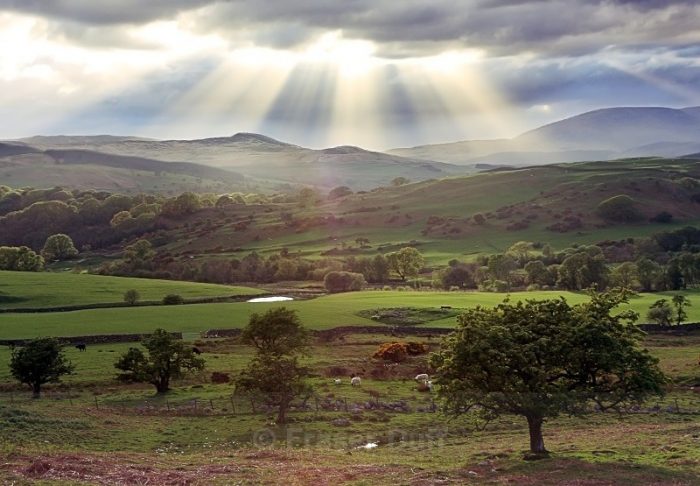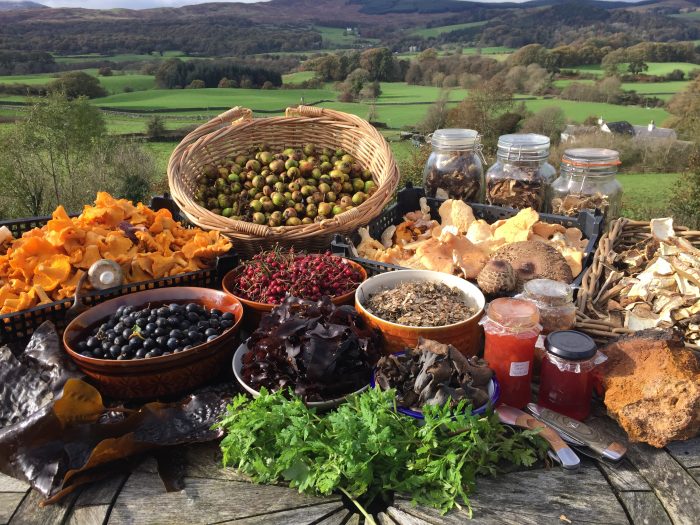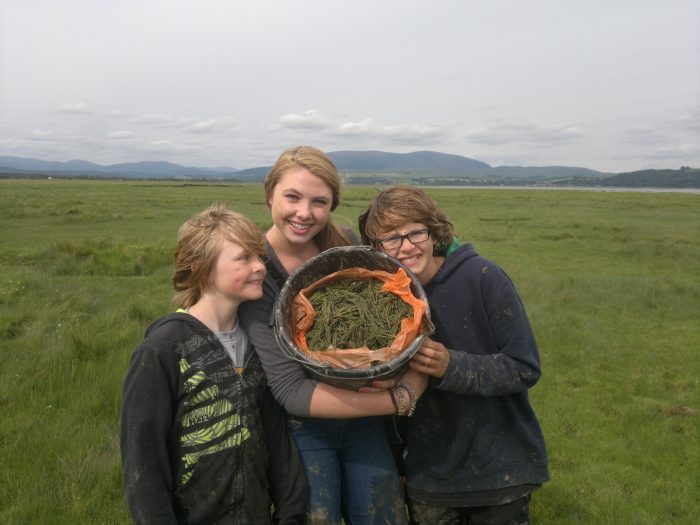Foraging in the Modern World : Eating Nature
As foraging grows ever more popular some voices question its impact. In this series of articles, foraging teacher Mark Williams explores how foraging and wild food fit into a society set on consuming itself.
Browse more blogs on the politics of foraging
Foraging is on the rise once more. What was once considered normal by our ancestors, then became a niche, eccentric activity, is again becoming a common pastime and food source for all sorts of people. Chefs, survivalists, bartenders, herbalists, but most of all everyday folk who want to engage with nature through what they eat and drink, are tuning in to our wild larder. But as numbers of people foraging grow, some individuals and organisations are challenging whether our green spaces can absorb this growing interest in the nutrition hiding in plain sight in our forests, hedgerows, parks and shores.
Its an important question, usually asked by people with the very best of intentions, and one that most thoughtful foragers ask themselves.
What is “nature”? – The Shifted Baseline
.
“When they arrived in California, early Western settlers (notably John Muir) thought they were looking at an untouched, pristine wilderness. In fact they were looking at a closely managed landscape in which human’s coexisted with their fellow species” – M. Kat Anderson – Tending The Wild
.
It is harder than you might think to say what is “natural”. Most people’s notions of “natural” or “wild” are seriously skewed. Unless you are on a very high mountain top, or perhaps a desolate bit of coast, hardly any of what you are looking at is “natural” or “wild” – it has been shaped by human activity. Most people’s idea of the “countryside” is hardly more natural than a city centre. Hedgerows, fields, forests and even high hill tops do not escape the impact of farming or sport shooting. The butterflies and birds in a garden are there no more ‘naturally” than the introduced plants on which they feed. The largest displays of edible fungi in the autumn often occur under modern plantations, not ancient forests.

The Fleet Valley, Galloway. Beautiful, but far from natural… Hill tops denuded by sheep and deer, fields of nitrogen enriched grass, huge spruce plantations. Even the old deciduous woodlands you see are the product of 18th century industrial charcoal production.
If we are to consider the “impact of foraging on nature”, we should start from a sensible perception of homo sapiens’ complex interaction with nature for the last 1.5 or so million years. Humans have constantly modified the landscapes and the species among which they dwell. Whether we like it or not, humans always have been, and always will be, modifiers of their environment – or “keystone species” as ecologists call them.
Sometimes this impact has been detrimental to ecosystems and it is easy to understand the collective guilt that many feel for this which often manifests in a “don’t touch anything” attitude. But our very existence inevitably has an impact – we can’t opt out of our place on earth. There are few who feel guilty enough to forgo or even significantly modify the energy, food and accommodation choices upon which they have come to rely, and which place a heavy burden on Earth’s resources.
.
The Consequences of Food Choices
.
Everything we eat and drink has consequences for our planet. There are no exceptions. But we can make choices about the scale of that impact.
The impact of large scale farming and agribusiness – which remains by far and away the biggest source of most people’s nutrition – is becoming increasingly, and depressingly, hard to ignore, wreaking havoc through ecosystems by use of chemical fertilisers, ploughing, habitat destruction, fossil fuel dependency, packaging, food miles etc. Smaller scale (perhaps organic) farming has less impact, but is still far from “natural” : eating an organic diet usually demands considerably more food miles than non organic equivalents.
Growing vegetables in your garden has much less impact, but still alters the balance of plants and dependent species in a locale.
Even the strictest Jainist diet of windfall fruit denies that fruit to invertebrates and the web of life that depends upon them.
The impact that foraging has on green spaces fits into this hierarchy somewhere above eating windfall, below planting out a garden with introduced species, and a very long way below any type of farming. This is why, when people challenge me over the impact of my own foraging, I politely enquire what food choices they are making that have less impact?
I’m not trying to shame anyone. But I do think its fair to ask, and I will not be lectured by armchair warriors who haven’t yet fully connected their “love of nature” with their day-to-day food choices.
Our food system is hugely complex and extremely difficult for anyone to navigate with a clear conscience (mine isn’t), but very few sources of sustenance are “lower impact” than wandering through a landscape thinning abundance. Foraging forces us to confront the immediate impact of our food choices – not defer, ignore and hide their consequences.
I am not for a moment suggesting that foraging is some magical panacea for our dysfunctional relationship with the earth, or our broken food system. Complex problems require complex, multi-faceted responses. Any meaningful, lasting solution must be underpinned by a change of mindset, a cultural renaissance which reconciles our care for our planet with our practical actions.
As more people recognise the power of foraging to reconnect our food choices in a meaningful way to the earth, we will most certainly need to nurture and develop a commensurate foraging culture. Please read the other articles in this series on Foraging in the Modern World where I explore what that culture looks like now, its challenges, and how it might develop.
.
In the mean time, to thoughtful foragers out there I say: be proud and never, ever apologise for your wild diet!


2 Comments
I think everyone should have the mentality that you must preserve before you actually harvest most foraging plants. Wisdom is the key.
I think “preserve” may be the wrong choice of words here… at first I thought you meant preserve as in jams, chutneys etc! I see know you mean in the sense of “preserving nature”. As preserving usually means rendering something inert and unreactive, I wonder if a better term might be “nurture”…? Anyway, I agree with your sentiment, though its really clear to me through all the people I teach and work with around foraging that it is the intimacy with nature that foraging brings that really encourages people to cherish, respect, nurture, steward, and protect wild plants, fungi and seaweeds. So the two attitudes generally go hand in hand in my experience.